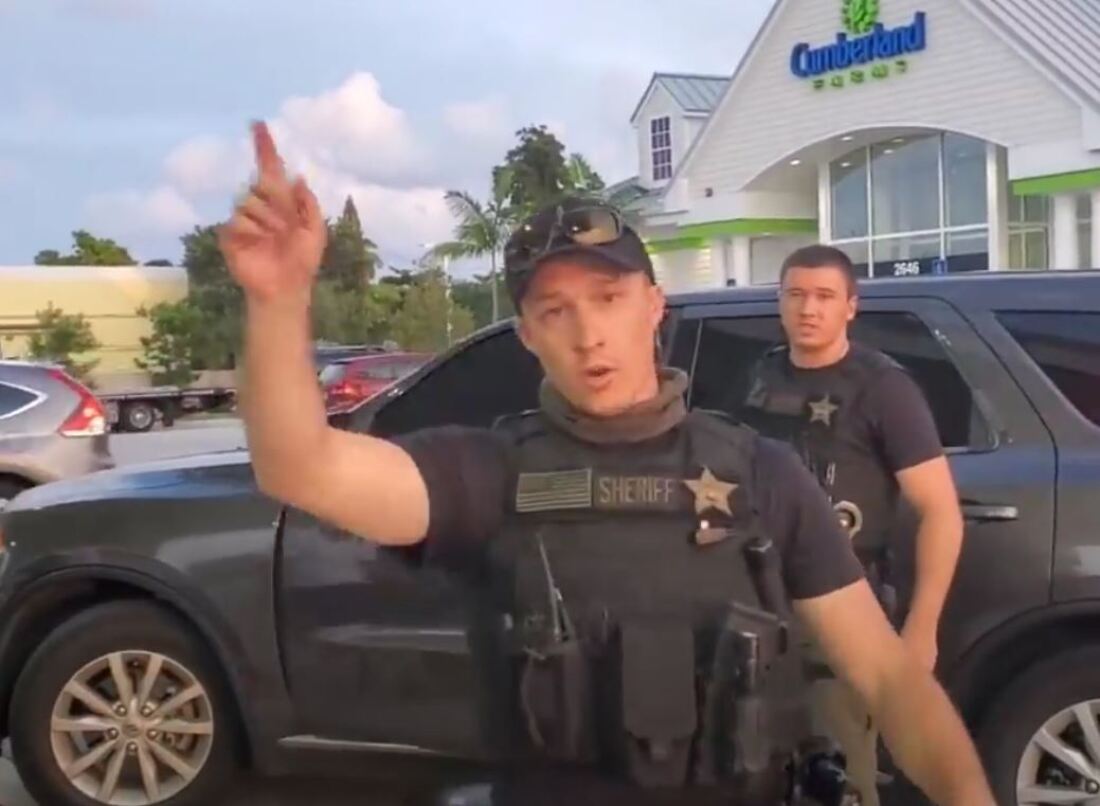Call us now:
Florida’s new “Halo Law,” effective January 2025, creates a protective 25-foot buffer zone around law enforcement officers, firefighters, and emergency medical crews. You can figure out the purpose of this law from the title of the bill: SB 184: Impeding, Threatening, or Harassing First Responders. The question remains though, is the bill’s true purpose to shield first responders, or to limit police accountability? The Florida Halo Law is explained here.

What is the Halo Law?
The Halo Law, passed under House Bill 184, was signed into law by Governor Ron DeSantis in April 2024. It establishes a 25-foot no-approach zone around first responders engaged in their official duties. If someone is verbally warned to stay back and continues to approach within this zone, they could face penalties, including fines and potential jail time (specifically associated with a 2nd degree misdemeanor).
What Are the Penalties for Violating the Halo Law?
Under this new legislation, individuals who encroach upon the 25-foot buffer zone after receiving a warning could face second degree misdemeanor charges. Penalties may include:
The Intent Behind the Halo Law
The Halo Law claims to safeguard first responders from harassment, threats, and physical interference. Its supporters argue that maintaining a safe distance allows first responders to perform their duties without unnecessary distractions or risks to their safety.
Concerns About the Halo Law’s Language and Interpretation
While the law’s intent is clearly stated in writing, its use and interpretation leave open concerns about its effect on citizens’ right to broadcast, monitor their government, witness wrongdoing, or assemble. For some period of time, the same kind of things which this law seeks to regulate (too many onlookers at a scene, bystanders getting too close to an investigation…) were handled by the police under the charge of resisting without violence (a 1st degree misdemeanor) . When that law was used in a similar manner, there were sometimes constitutional challenges and issues with its usage – i.e. was the officer acting lawfully, was the interference actually obstructing or opposing, etc. This law codifies some concerns that have been raised by courts in cases over the years and ultimately makes conduct that could in some circumstances have been a first-degree misdemeanor a second-degree misdemeanor, and creates a clear process which includes warning, distance, and purpose.
But most importantly, the main concern that most would have with this law would be – is this law simply a pretext for the police to more easily seize recording devices when they are not performing their jobs properly or violating the rights of citizens? The answer to that question will only come later once we all can see how it is used by the police in first responders.
Nobody wants their rights to record chilled by being afraid of being arrested by the police who could abuse this protective halo, and only by being vigilant in monitoring how and when this law is used on a case-by-case basis will we find out in the coming year.
843.31 Approaching a first responder with specified intent after a warning.—
(1) As used in this section, the term:
(a) “First responder” includes a law enforcement officer as defined in s. 943.10(1), a correctional probation officer as defined in s. 943.10(3), a firefighter as defined in s. 784.07(1), and an emergency medical care provider as defined in s. 784.07(1).
(b) “Harass” means to willfully engage in a course of conduct directed at a first responder which intentionally causes substantial emotional distress in that first responder and serves no legitimate purpose.
(2)(a) It is unlawful for a person, after receiving a verbal warning not to approach from a person he or she knows or reasonably should know is a first responder, who is engaged in the lawful performance of a legal duty, to knowingly and willfully violate such warning and approach or remain within 25 feet of the first responder with the intent to:
1. Impede or interfere with the first responder’s ability to perform such duty;
2. Threaten the first responder with physical harm; or
3. Harass the first responder.
(b) A person who violates this subsection commits a misdemeanor of the second degree, punishable as provided in s. 775.082 or s. 775.083.
For more Florida Halo law news – WTSP, Orlando Sentinel, Gainesville Sun
Why Retaining an Attorney Matters
If you’re accused of violating the Halo Law or any criminal matter, retaining an attorney is critical to protecting your rights. These cases will involve constitutional questions and concern allegations of misconduct or are sensitive in nature, requiring a skill, preparation and experience. For expert legal help, contact Gainesville Defense Lawyer Matt Landsman to protect your rights today.
